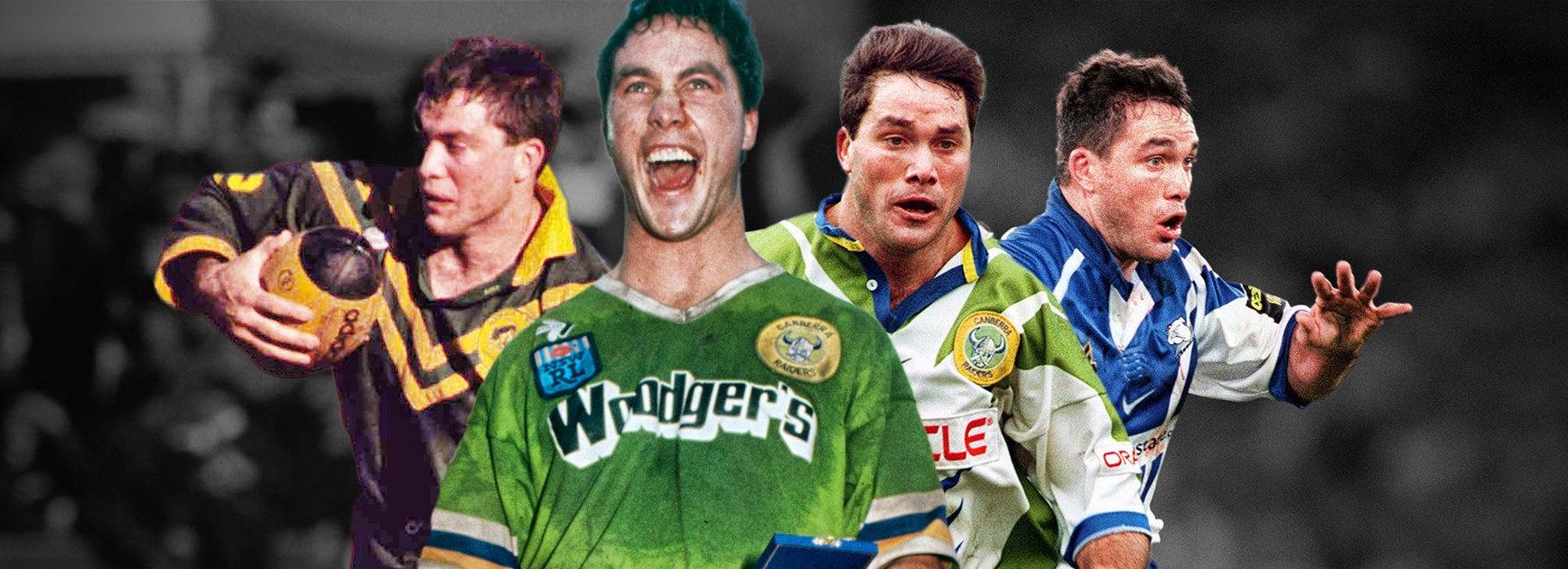
Considered one of rugby league's greatest locks, Bradley Clyde achieved almost everything in the game.
A dual Clive Churchill Medallist and two-time premiership winner who played 12 State of Origins for NSW and 19 Australian Tests, he was vital to the champion Canberra Raiders team throughout the late 1980s and '90s.
Having won the club's Rookie of the Year award as a teenager in '88, Clyde had a penchant for success and went on to carve a revered legacy with The Green Machine before finishing his career at Canterbury.
Bradley Clyde
You shot to stardom in 1989, playing for NSW, Australia and winning the Clive Churchill Medal after Canberra's classic grand final win over Balmain. What sticks out from that year?
We had to win nine games straight to win the grand final and that's exactly what we did. A lot of those games came down to the last minutes of play to score points. So it was do-or-die for most of those games and we developed a strong bond and culture of winning. A lot of the young players that were in the team certainly weren't household names back then - Laurie Daley, Glenn Lazarus, Ricky Stuart. That was the platform from which they'd take a giant leap.
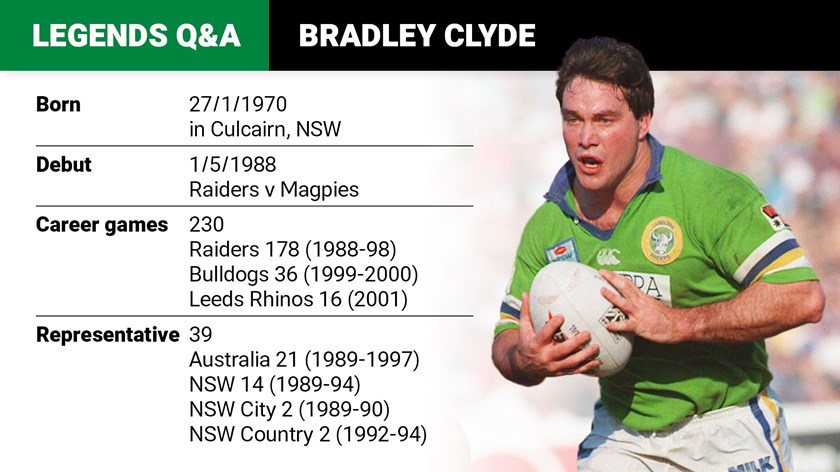
A tireless work ethic and relentless defence were the defining aspects of your game. How did you develop those traits?
I just loved being around the ball. To tell you the truth, I just loved being involved in the game in every element. So the closer I was to the action, the happier I was.
After the highs of '89 came a low when a knee injury kept you out of the 1990 grand final victory and Kangaroo tour. How hard was it to miss out on those triumphs?
It was a pretty early lesson for me. I was 20 years old - I'd experienced the highs and I had to experience the lows as well. Looking back, I think things happen for a reason and that was a lesson I had to learn in terms of growing my own character and the maturity that comes with being a first-grade football player.
You rebounded in '91 to win your second Clive Churchill Medal in a loss to Penrith - becoming the first player to receive the honour in a beaten side. Was there any controversy?
There was, yeah. I mean, [Panthers hooker] Royce Simmons played really well and could have quite easily picked up that medal. I remember the game play-by-play and he certainly featured in a lot of those big plays they came up with. I was happy with my game and really happy to pick up the award in a losing team. It added some brightness to an otherwise not-so-bright day.
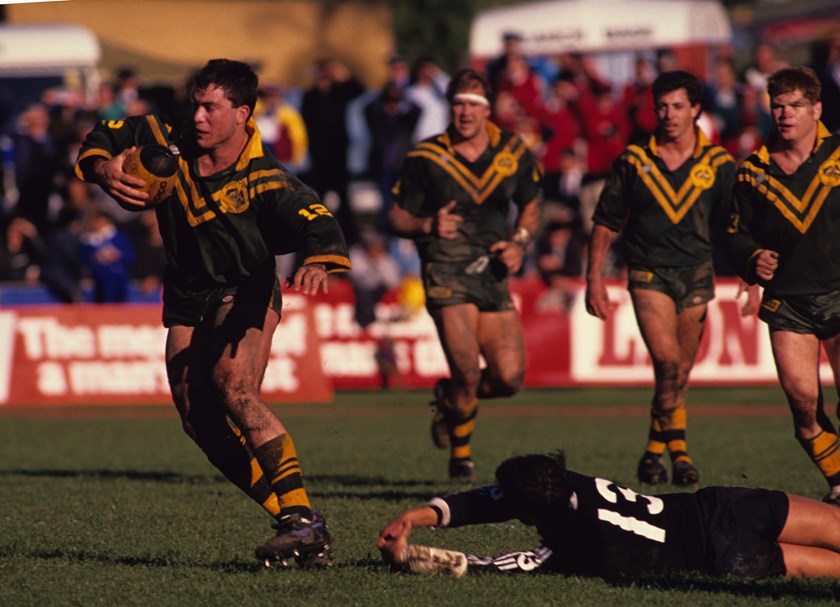
In 1994 you played in your third grand final in seven seasons and clinched another premiership. It's still Canberra's most recent title. Did you have any inkling of the drought to come?
No, not at all. You expected [to play] in semi-finals and then expected a pathway through to the grand final – and that never came unfortunately … It's something that has been addressed and it was great to see them up there this year.
You famously knocked back a big offer from Kerry Packer to join Eastern Suburbs in 1995 to stay loyal to Canberra. Were you close to accepting the deal?
I gave it some serious consideration. The amount of money that was being kicked around was really humbling and I was honoured to even be speaking with the Roosters, Kerry Packer and James Packer. But I felt a real loyalty to my [Raiders] mates that I was playing footy with. They were the best players in the world at the time, of course, and we were winning football games. Plus I would have had to leave home and I had a strong bond to Canberra. I grew up there as a youngster, my parents lived there, my friends lived there, so I didn’t see any reason to leave.
With Canberra defecting to the Super League for its lone 1997 season, you became one of the rebel competition's poster boys. How was that experience?
The actual experience was great but I think looking back, the game was damaged and damaged for some time after. I probably wouldn't make those same decisions again given the impact on the game, nor do I think the key people involved would. It was certainly an interesting time.
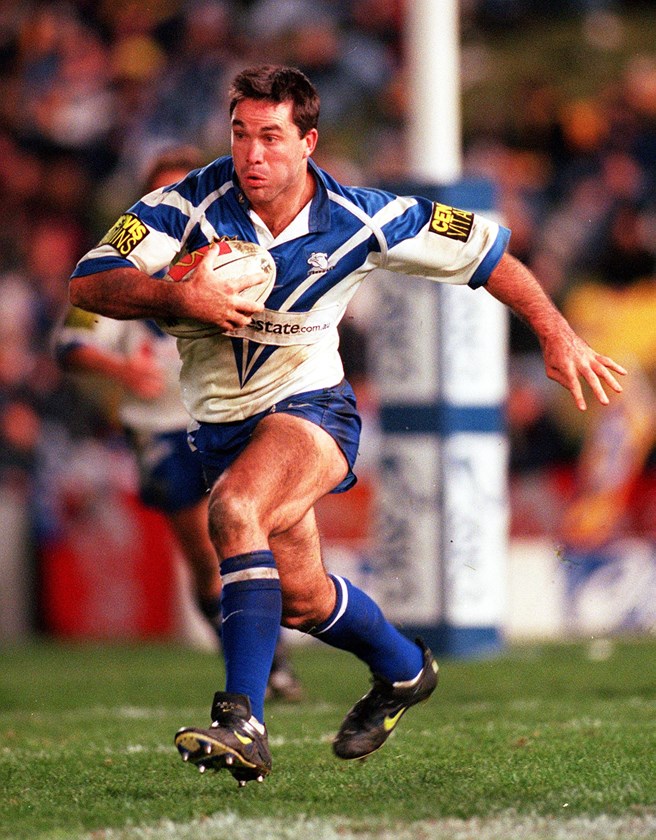
Despite sticking solid with the Raiders, salary cap pressures after the Super League season meant you and Ricky Stuart were moved on to Canterbury in 1999. Did that hurt?
I understood it [but] I didn't necessarily like that decision. I considered myself a Canberran, a proud one at that, and then I had to move. In hindsight, again, I have the philosophy that things happen for a reason. I moved to Sydney and I'm still here now and enjoying life. I certainly enjoy going back to Canberra but it's my home here, I've got three great children that have been raised in Sydney. That's just the way things happen sometimes.
You got a NSW recall in 1999, five years since your last official Origin match. Then a horse-riding accident in a team bonding exercise sidelined you for the series, effectively ending your rep career. How did that go down and were you angry?
[Laughs] Again, I didn’t quite understand it - I thought bonding in a State of Origin camp was always having a few beers with your teammates, telling each other how good they are and sharing some stories! Horse-riding never really featured. But it was something that we all invested in. My horse got spooked and I damaged my shoulder – it was damaged for about eight weeks. These things happen, you experience the highs and lows – I was brought into the NSW team and then I had it taken away from me. You've got to manage these things and come out better for it, and I think I did that.
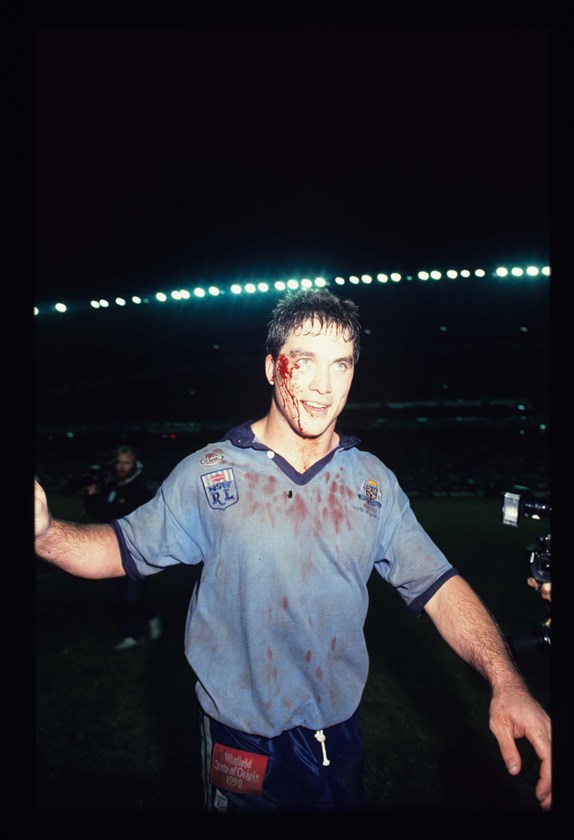
Following two seasons at Canterbury you headed to England to play with Leeds for a year. Did you like living and playing in a new country?
That was exactly the reason why I wanted to go England in the first place - to experience living in a new country and culture. The culture was incredible, great for my young family at the time. I had a wonderful time over there. Towards the end, my wife at the time got ill with meningitis, I had a terrible tear to my Achilles tendon, so it was time to call it quits and go and get a real job.
Your standing as an absolute legend of the game is undeniable despite injuries striking at inopportune times. Do you believe you used all your potential?
I think I applied myself at the highest level at every opportunity. Looking back, I certainly have no regrets. I'm really happy with my achievements and the people I now call friends. I'm really content with how I applied myself and I think that's the main thing.





